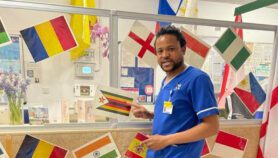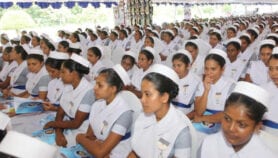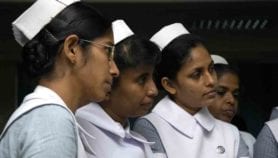By: Wagdy Sawahel
Send to a friend
The details you provide on this page will not be used to send unsolicited email, and will not be sold to a 3rd party. See privacy policy.
In a bid to solve Saudi Arabia’s scientific workforce shortage, King Abdullah bin Abdulaziz has given the green light to a law allowing foreign researchers resident in the country to apply for Saudi citizenship.
It is hoped that the new naturalisation law for qualified professionals will foster Arab science.
Applicants who have doctorates in medicine or engineering will be given preference, followed by those with doctorates in other sciences, and those with master’s degrees in science, engineering and medical fields.
Scientists who have been in Saudi Arabia continuously for ten years or more, and those with relatives who already hold Saudi citizenship will also be given preference.
At present, Saudi engineering graduates meet only one-fifth of the country’s needs and 68 per cent of science jobs are filled by science graduates from abroad (see Saudi science shortages need ‘proper planning’).
Al-Ajlan welcomed the Saudi government’s decision, and said that Arab and Muslims scientists must be given a priority because they can integrate smoothly in the Saudi society.
Saudi Arabia is making great progress in the field of water desalination, he says, and the scheme "will give the country a boost so it can be a pioneer in all scientific and technological fields".
It will also help Saudi Arabia develop economically and socially, says Al-Ajlan.
Mohammed Kuchari, associate professor of microbiology at King Abdul Aziz University in Jeddah, Saudi Arabia, told SciDev.Net that programmes for developing the Saudi scientific workforce must be promoted and encouraged.
Magdi Tawfik Abdelhamid, a scientist at Cairo’s National Research Centre in Egypt told SciDev.Net that the law "will help in turning the Arab and Muslim ‘brain drain’ that threatens science development into ‘brain circulation’, and lead to economic gains."













